Portal:Oceans
The Oceans Portal
A portal dedicated to oceans, seas, oceanography and related topics
– Hover over image and scroll to middle for controls to see more selected panorama images –
Introduction
| Earth's ocean |
|---|
|
Main five oceans division: Further subdivision: Marginal seas |

The ocean is the body of salt water that covers approximately 70.8% of Earth. In English, the term ocean also refers to any of the large bodies of water into which the world ocean is conventionally divided. The following names describe five different areas of the ocean: Pacific, Atlantic, Indian, Antarctic/Southern, and Arctic. The ocean contains 97% of Earth's water and is the primary component of Earth's hydrosphere and is thereby essential to life on Earth. The ocean influences climate and weather patterns, the carbon cycle, and the water cycle by acting as a huge heat reservoir. (Full article...)

A sea is a large body of salt water. There are particular seas and the sea. The sea commonly refers to the ocean, the interconnected body of seawaters that spans most of Earth. Particular seas are either marginal seas, second-order sections of the oceanic sea (e.g. the Mediterranean Sea), or certain large, nearly landlocked bodies of water. (Full article...)
Oceanography (from Ancient Greek ὠκεανός (ōkeanós) 'ocean' and γραφή (graphḗ) 'writing'), also known as oceanology, sea science, ocean science, and marine science, is the scientific study of the ocean, including its physics, chemistry, biology, and geology. (Full article...)
Selected article -
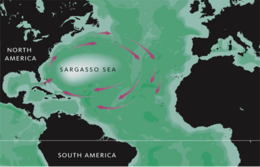
The Sargasso Sea (/sɑːrˈɡæsoʊ/) is a region of the Atlantic Ocean bounded by four currents forming an ocean gyre. Unlike all other regions called seas, it has no land boundaries. It is distinguished from other parts of the Atlantic Ocean by its characteristic brown Sargassum seaweed and often calm blue water.
The sea is bounded on the west by the Gulf Stream, on the north by the North Atlantic Current, on the east by the Canary Current, and on the south by the North Atlantic Equatorial Current, the four together forming a clockwise-circulating system of ocean currents termed the North Atlantic Gyre. It lies between 20° and 35° north and 40° and 70° west and is approximately 1,100 kilometres (600 nautical miles) wide by 3,200 km (1,750 nmi) long. Bermuda is near the western fringes of the sea. (Full article...)
Interesting facts -
- Croatian oceanographer Mira Zore-Armanda had difficulty gaining passage on research vessels because she was a woman.
- The Swedish American Line was the first transatlantic shipping company to operate a diesel-engined ocean liner.
- American actress Susan Oliver, after surviving a plane crash that almost ended her life, became the first woman to fly a single-engined aircraft solo from New York City across the Atlantic Ocean.
Selected list articles and Marine habitat topics
| Marine habitats |
|---|
| Coastal habitats |
| Ocean surface |
| Open ocean |
| Sea floor |
- List of oceans
- List of ancient oceans
- List of seas
- List of circumnavigations
- List of cruise lines
- List of largest lakes and seas in the Solar System
- List of marine biologists
- List of marine ecoregions
- List of maritime explorers
- List of naval battles
- List of ocean liners
- List of oceanographic institutions and programs
- List of oldest surviving ships
- List of rogue waves
- List of seafood dishes
- List of submarine topographical features
Tasks
 |
Here are some tasks awaiting attention:
|
General images -
Related portals
In the news
- 4 March 2025 – Red Sea crisis
- The Houthis claim to have shot down an American MQ-9 UAV, stating that it was conducting "hostile missions" over Al Hudaydah. The U.S. Air Force later confirms a loss of contact with the drone. (Al Arabiya)
- 3 March 2025 –
- At least 80 people are trapped inside a supermarket in Güímar, Tenerife, and dozens of cars are swept away to sea and stuck in mud in Gran Canaria after torrential rain caused floods across the Canary Islands in Spain. (Canaria Weekly) (The Sun)
- 28 February 2025 – 2024–25 South-West Indian Ocean cyclone season
- Three people are killed as tropical cyclone Garance makes landfall in Réunion in the Indian Ocean. (AP)
- 23 February 2025 –
- American Airlines Flight 292, flying from New York, United States, to New Delhi, India, is forced to divert to Rome Fiumicino Airport in Rome, Italy, due to an unspecified security concern later deemed to be non-credible. The flight was over the Caspian Sea near Turkmenistan when it diverted back towards Europe. (AP)
- 22 February 2025 – Yemeni civil war
- Houthi forces launch surface-to-air missiles at a U.S. fighter jet and MQ-9 Reaper drone over the Red Sea for the first time with both missiles missing their target. (Reuters)
WikiProjects
Topics
Categories
Associated Wikimedia
The following Wikimedia Foundation sister projects provide more on this subject:
-
Commons
Free media repository -
Wikibooks
Free textbooks and manuals -
Wikidata
Free knowledge base -
Wikinews
Free-content news -
Wikiquote
Collection of quotations -
Wikisource
Free-content library -
Wikiversity
Free learning tools -
Wiktionary
Dictionary and thesaurus
Admiralty law
| Admiralty (Maritime) Law |
|---|
| History |
| Features |
| Contract of carriage/Charterparty |
| Parties |
| Judiciaries |
| International organizations |
| International conventions |
|
| International Codes |
Need assistance?

Do you have a question about oceans, seas or oceanography that you can't find the answer to? Consider asking it at the Wikipedia reference desk.
External media

- World Ocean Database and World Ocean Atlas Series – from the U.S. National Centers for Environmental Information, National Oceanic and Atmospheric Administration. Includes the World Ocean Atlas.
- European Atlas of the Seas – the European Atlas of the Seas, from the European Commission
- NOAA Research – NOAA research news, Oceanic and Atmospheric Research (OAR)
- Ocean Research – from The World Ocean Observatory
- Ocean Biodiversity Information System – "a global open-access data and information clearing-house on marine biodiversity for science, conservation and sustainable development"









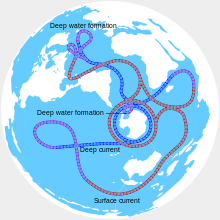












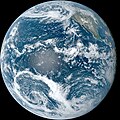













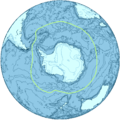







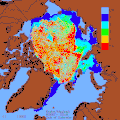






























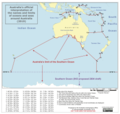





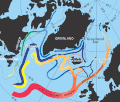






















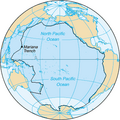


![Image 102"Terres Australes" [sic] label without any charted landmass (from Southern Ocean)](http://upload.wikimedia.org/wikipedia/commons/thumb/8/8e/Geography_world_map.jpeg/120px-Geography_world_map.jpeg)


![Image 105An exclusive economic zone (EEZ) map of the Pacific which excludes non-tropical islands.[why?] (from Pacific Ocean)](http://upload.wikimedia.org/wikipedia/commons/thumb/b/bc/Map_of_the_Exclusive_Economic_Zones_of_the_Pacific_Ocean.png/120px-Map_of_the_Exclusive_Economic_Zones_of_the_Pacific_Ocean.png)

































